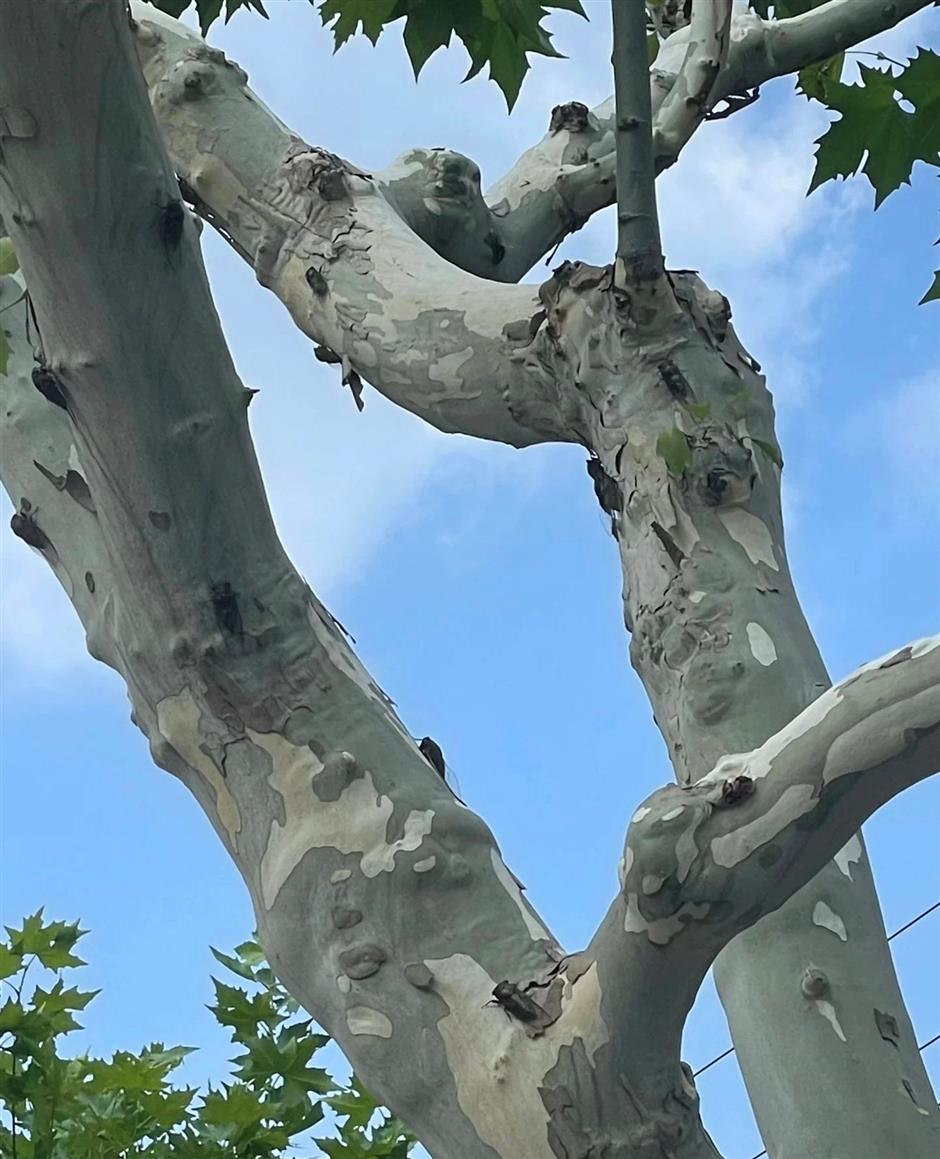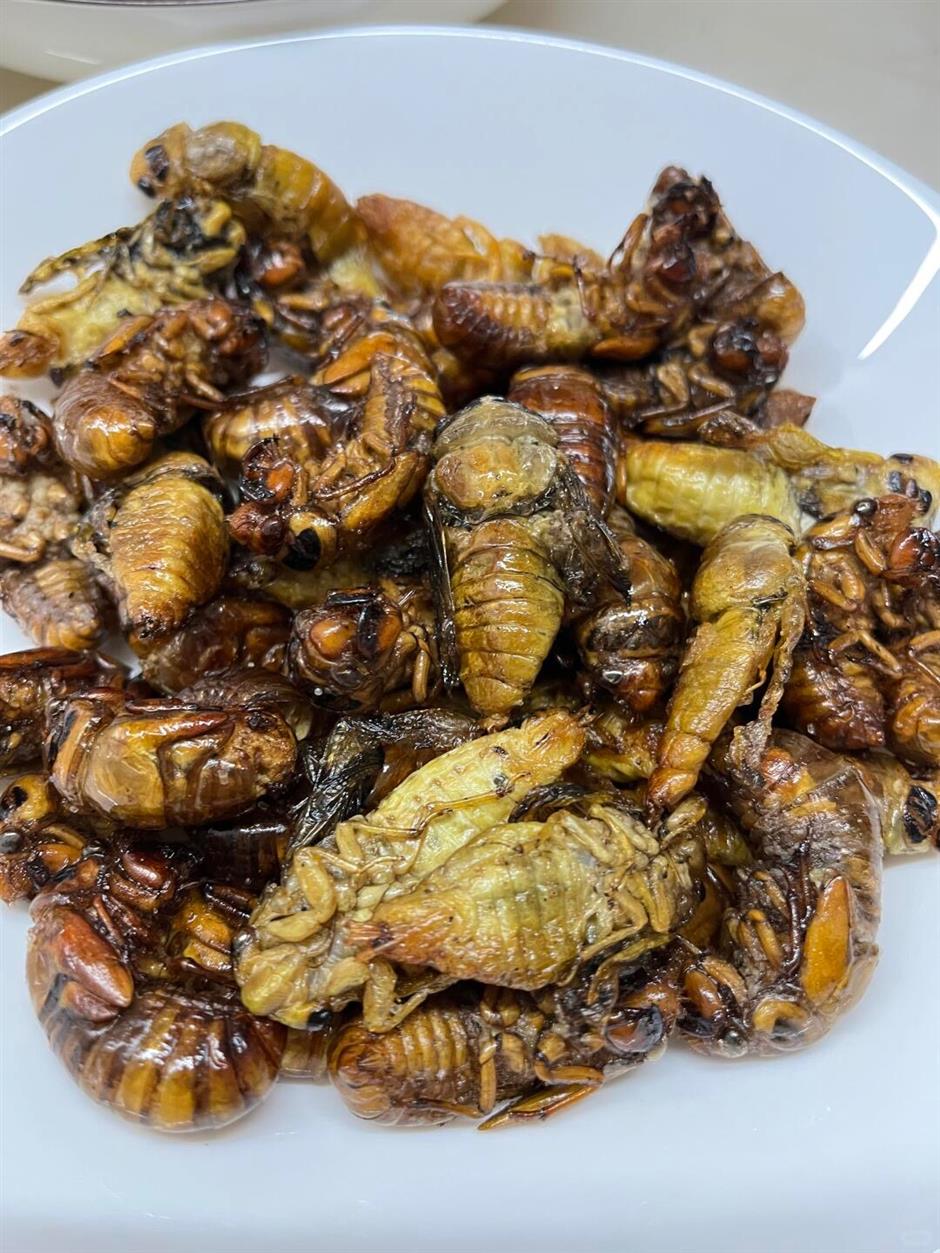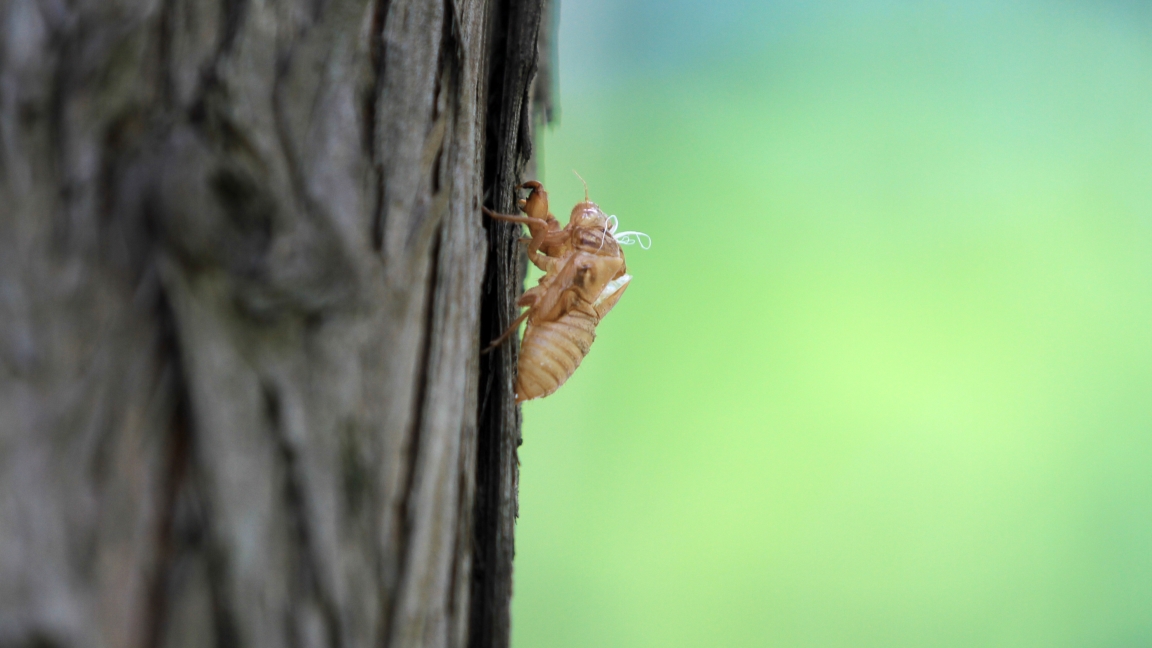
If you've been jolted awake by an army of buzzing cicadas lately – or accidentally walked through a warm "shower" under a tree – welcome to summer 2025.
Shanghai has been buzzing – literally. Residents are reporting what feels like a cicada takeover: louder calls, more sightings, and yes, a surprising amount of what can only be described as bug pee. The surge is sparking widespread discussion across Chinese social media.

Dozens of cicadas can be seen clustered on a single tree.
Some are calling this a "big cicada year," but experts say it's not necessarily a population spike – just a more visible one. In fact, some of the insects emerging now likely started life three years ago.
"Cicadas spend years underground, so the ones surfacing now probably came from eggs laid around 2022 when human activity – and pesticide use – dropped sharply," said Guo Jiangli, senior engineer at the Shanghai Botanical Garden.
That unexpected "quiet" period gave more insect eggs a chance to survive. Combine that with ongoing efforts to green the city and reduce chemical use, and it's a recipe for a louder, buzzier summer.
"In recent years, we've used far fewer insecticides in city parks," said Guo, "this has allowed natural insect populations, including cicadas, to recover."
A viral video shows what appears to be cicada 'pee' raining down from trees.
Cicadas aren't just loud – they're also leaky.
Online, locals are swapping stories of getting "rained on" while walking under trees. The culprit? Cicadas relieving themselves.
These insects guzzle tree sap (mostly water) and pee it out at impressive speed – up to 3 meters per second, according to one US study.
"It's basically filtered sap," said a staffer at the Shanghai Natural History Museum quoted by Jiefang Daily. "Gross, maybe, but harmless."
The bugs might get on some people's nerves, but experts are asking for a little understanding – and patience.
Cicadas live most of their lives underground as nymphs, sometimes for years, emerging briefly as adults to mate and lay eggs. The males produce loud chirps to attract females, but this only lasts a few weeks.

A dish made with cicadas.
Can we eat them?
Some netizens are joking: if we can't sleep, can we at least snack?
It's not as strange as it sounds – cicadas have long been used in traditional Chinese medicine and cuisine. Their dried shells are thought to help with sore throats and fevers, and the nymphs are high in protein.
In rural areas, people still catch cicada nymphs at night and sell them online for about 1 yuan (US$0.14) each.
But experts warn against harvesting wild cicadas from cities – they may carry pesticide residue or heavy metals from pollution.
"Trees in cities often absorb chemicals," said a staffer at the Natural History Museum. "Eating wild cicadas could be unsafe."
Despite the noise and inconvenience, ecologists say a visible cicada season may be a good thing. It signals that Shanghai's urban ecosystems, especially parks and tree belts, are bouncing back.
"Nature has its own way of restoring balance," said Guo. "Even loud cicadas are part of a greener, healthier city."

